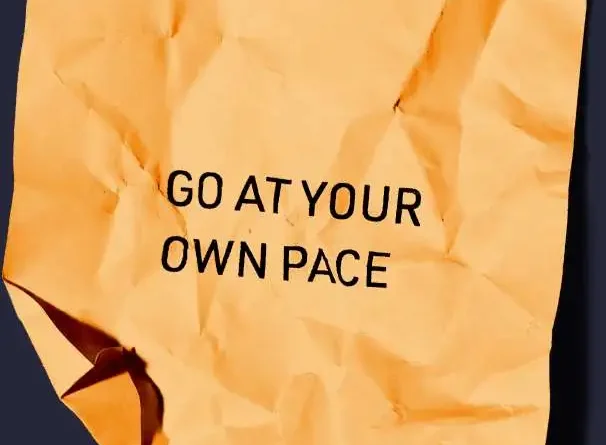Breaking Free from Anxiety: Therapeutic Strategies for Inner Peace
September 13, 2024

Anxiety is an all-too-common struggle in today’s fast-paced world. With constant demands and expectations placed upon us, it can feel overwhelming to manage the emotions that come with anxiety. Yet, overcoming anxiety is not only possible but attainable through a variety of therapeutic approaches. This article will guide you through practical anxiety management techniques and therapeutic strategies for anxiety that promote long-term mental well-being.
Understanding Anxiety: The First Step Toward Healing
Before diving into specific therapeutic techniques, it’s essential to first understand anxiety at its core. Anxiety is a natural emotional response, often characterized by feelings of worry, fear, or unease. It’s not inherently negative—mild anxiety can act as a motivator or a warning signal that helps us prepare for future events.
However, when anxiety becomes persistent and disproportionate to the situation at hand, it can disrupt daily life. Common symptoms include racing thoughts, excessive worrying, muscle tension, and difficulty concentrating. At its most intense, anxiety may manifest in panic attacks or chronic disorders, such as generalized anxiety disorder (GAD) or social anxiety disorder.
Why Anxiety Management Matters
The importance of anxiety management cannot be overstated. Left unchecked, chronic anxiety can lead to more serious mental health issues, such as depression, burnout, or physical ailments like insomnia, heart problems, and weakened immunity. By incorporating therapeutic strategies for anxiety into your daily life, you can not only reduce anxiety symptoms but also cultivate inner peace and improve your overall well-being.
The good news? There are numerous effective ways to cope with and even overcome anxiety, ranging from traditional psychotherapy to mindfulness practices.
Therapeutic Strategies for Anxiety
Effective anxiety management begins with understanding that no one-size-fits-all solution exists. Instead, the journey toward inner peace is personal and can be addressed using a variety of therapeutic strategies for anxiety. Let’s explore several approaches.
1. Eye Movement Desentization Processing (EMDR)
Anxiety is a normal human response to stress or danger of some kind. Anxiety is what I refer to as our internal alarm system. When we have chronic or easily it’s because we can’t turn the alarm off or it’s very easily turned on. This is often the outgrowth of untreated trauma.
Traumatic events can have different effects on different people. If a traumatic experience is never fully resolved, it can manifest in other ways later in life and become interruptive or problematic.
In addition to the treatment of PTSD, EMDR is also used to treat the psychological effects of smaller traumas that manifest in symptoms of depression, anxiety, phobias, low self-esteem, creativity blocks, and relationship difficulties.
2. Mindfullness Based Cognitive Behavioral Therapy (CBT):
One of the most effective and widely used therapeutic strategies for anxiety is Mindfullness Based – Cognitive Behavioral Therapy ). CBT focuses on identifying and altering negative thought patterns that trigger anxiety.
This form of therapy combines mindfulness techniques such as meditation, body scans, etc., with proven strategies found in cognitive behavioral therapy. Ultimately, we aim to help clients lessen the effects of depression or anxiety and achieve a greater sense of wellbeing. Whether you struggle with social anxiety or obsessive-compulsive disorder (OCD). This is one of the most effective methods for managing symptoms and reclaiming inner peace.
Mindfulness is a powerful tool for anxiety management because it teaches you to live in the present moment rather than being trapped by fears of the future or past regrets. Mindfulness-based stress reduction (MBSR) and mindfulness meditation encourage you to focus on the present experience without judgment.
By practicing mindfulness, you become more aware of your thoughts, feelings, and bodily sensations without becoming overwhelmed by them. This can reduce anxiety by giving you the ability to observe your emotions and let them pass rather than allowing them to control you.
Simple mindfulness practices include mindful breathing, body scans, and guided meditations. These exercises help anchor your awareness to the present, thereby reducing the mental chatter that often fuels anxiety.
3. Breathing Techniques and Relaxation Exercises:
Breathing techniques and relaxation exercises are simple yet powerful ways to manage anxiety by calming the nervous system. Anxiety often triggers the “fight or flight” response, causing rapid heart rate, shallow breathing, and muscle tension.
Controlled breathing exercises, such as deep diaphragmatic breathing, can quickly reverse these physical symptoms. By focusing on your breath and taking slow, deep inhalations and exhalations, you can signal to your body that it’s safe to relax.
Progressive muscle relaxation (PMR) is another useful tool. It involves systematically tensing and relaxing different muscle groups, helping you release physical tension and achieve a sense of calm. These techniques can be particularly helpful during moments of acute anxiety, such as before a presentation or during a panic attack.
4. Journaling:
Journaling is an excellent coping mechanism for inner peace, as it allows you to express your feelings and gain insight into your emotional state. Writing down your thoughts can help you untangle complex emotions and pinpoint the root causes of anxiety.
Regular journaling can serve as an outlet for processing difficult experiences or irrational fears. By externalizing your thoughts, you’re better able to analyze them objectively and develop more adaptive ways of coping. Furthermore, journaling helps you track your progress over time, providing evidence of the improvements you’ve made in managing your anxiety.
Consider using prompts like, “What is causing my anxiety right now?” or “What are the thoughts that are making me feel anxious?” Writing down these responses can create clarity and alleviate some of the mental burden associated with anxiety.
Coping Strategies to Manage Anxiety
While therapeutic strategies for anxiety provide the foundation for long-term healing, there are several day-to-day coping mechanisms that can help promote inner peace. Here are some additional techniques to consider:
1. Movement:
Physical movement is one of the most effective ways to reduce anxiety and improve overall mental health. Movement releases endorphins, the body’s natural stress relievers, and increases the production of neurotransmitters like serotonin, which contribute to a positive mood.
Whether it’s yoga, running, swimming, or a brisk walk in the park, physical activity can provide a break from anxious thoughts and help you feel more centered and calm. Additionally, regular movement improves sleep quality and boosts energy levels, both of which are critical for managing anxiety.
2. Limit Caffeine and Sugar:
What you eat and drink can have a significant impact on your anxiety levels. Caffeine, found in coffee, tea, and energy drinks, is a known stimulant that can exacerbate anxiety by increasing heart rate and creating jitteriness. Similarly, high sugar intake can cause rapid spikes and crashes in blood sugar levels, leading to mood swings and heightened anxiety.
By reducing or eliminating caffeine and sugary foods from your diet, you may notice a reduction in your anxiety symptoms. Opt for balanced, nutrient-rich meals that stabilize blood sugar levels and promote a calm state of mind.
3. Creating a Relaxing Environment:
Your external environment plays a crucial role in your internal state. Creating a calming, clutter-free space in your home or workspace can reduce anxiety and promote inner peace. Simple changes, such as adding soft lighting, incorporating calming scents like lavender, or playing soothing music, can create a sanctuary where you feel more at ease.
Make your environment a reflection of peace by minimizing distractions and focusing on elements that bring you comfort and relaxation.
4. Build a Support System:
Having a strong support system is essential for managing anxiety. Whether it’s friends, family, or a therapist, talking about your anxiety can relieve emotional burden and offer new perspectives on how to handle it.
Don’t hesitate to reach out to loved ones when you’re feeling overwhelmed. Knowing that you’re not alone and that there are people who care about your well-being can provide immense comfort and support during difficult times.
5. Setting Boundaries:
Anxiety often thrives in situations where we feel overwhelmed or overburdened. Setting healthy boundaries is crucial for protecting your mental energy and preventing burnout. Learn to say “no” when your plate is full, and prioritize activities that bring you joy and fulfillment.
Boundaries create a sense of control and empowerment, which can significantly reduce anxiety. By limiting your exposure to stressful situations or toxic relationships, you can create a more balanced and peaceful life.
6. Journaling:
Journaling is an excellent coping mechanism for inner peace, as it allows you to express your feelings and gain insight into your emotional state. Writing down your thoughts can help you untangle complex emotions and pinpoint the root causes of anxiety.
Regular journaling can serve as an outlet for processing difficult experiences or irrational fears. By externalizing your thoughts, you’re better able to analyze them objectively and develop more adaptive ways of coping. Furthermore, journaling helps you track your progress over time, providing evidence of the improvements you’ve made in managing your anxiety.
Consider using prompts like, “What is causing my anxiety right now?” or “What are the thoughts that are making me feel anxious?” Writing down these responses can create clarity and alleviate some of the mental burden associated with anxiety.
Finding Inner Peace Through Anxiety Management
Breaking free from anxiety is a gradual process, but by implementing the right therapeutic strategies for anxiety and adopting effective coping mechanisms for inner peace, you can regain control over your mental health. Whether you lean toward cognitive-behavioral therapy, mindfulness meditation, or simply taking a walk in nature, the key is consistency and self-compassion.
Remember, managing anxiety is not about eliminating it completely but about finding ways to coexist with it in a healthy, balanced way. By nurturing both your mind and body, you can cultivate the inner peace you deserve.
Need Psychotherapy in New York, NY?
If you’re ready to take the next step in managing your anxiety and reclaiming your sense of inner peace, we’re here to help at SteadyNYC. Our compassionate and experienced team of therapists specializes in personalized therapeutic strategies that can empower you to navigate anxiety with confidence. Whether you’re interested in cognitive-behavioral therapy, mindfulness practices, or simply need support in finding balance, we’re here to guide you every step of the way. Reach out to us today and together, let’s work to create lasting, positive change in your mental well-being.



